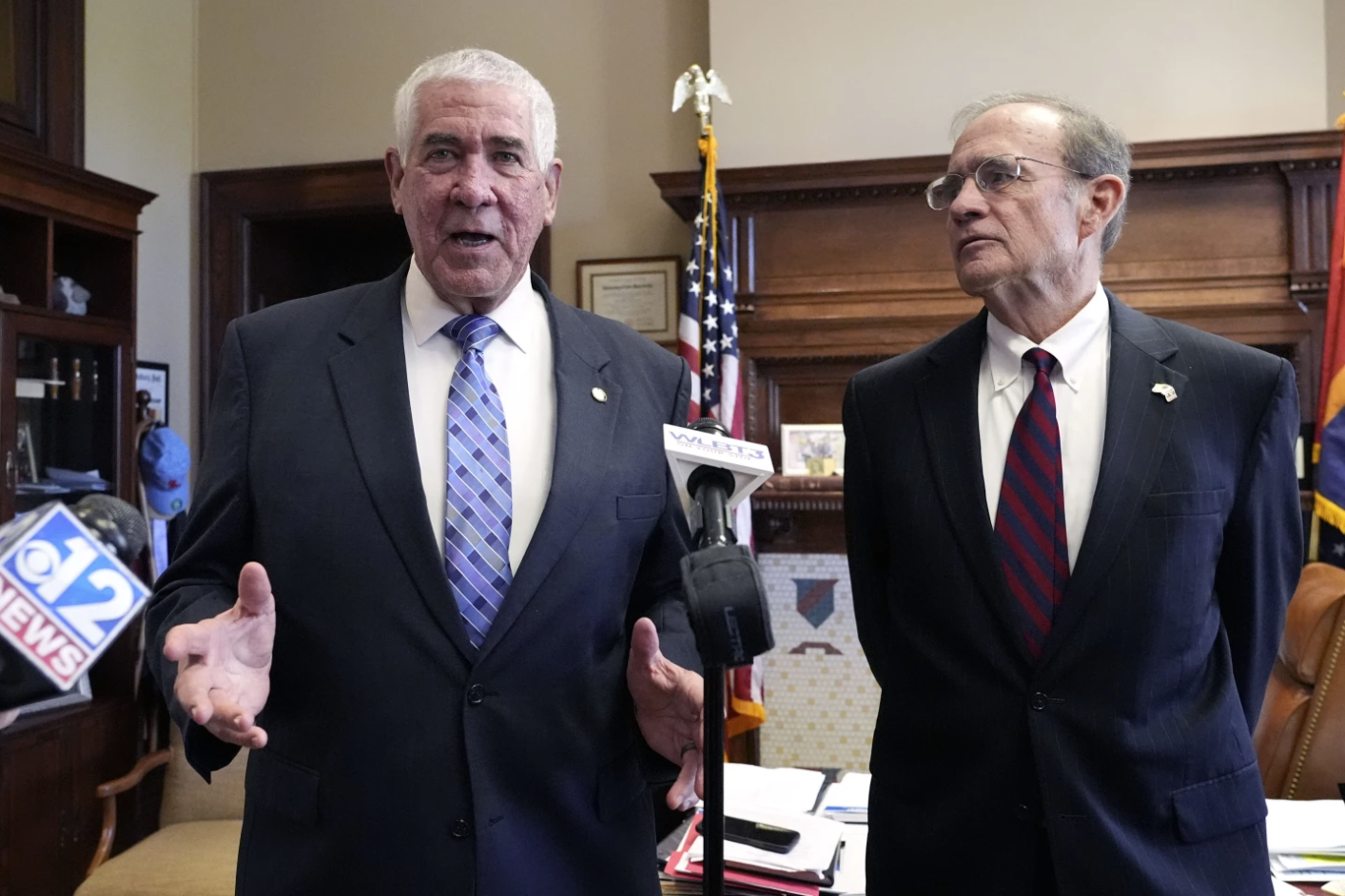The Senate inserted their Medicaid committee substitute into House Bill 1725 and passed it in a veto-proof 36-16 vote after two hours of debate. The upper chamber's plan would grant Medicaid eligibility to people making up to 100 percent of the federal poverty level, or just over $15,000 for an individual. It is also contingent on federal approval of a 120 hour per month work requirement.
Republican Lieutenant Governor Delbert Hosemann says giving health coverage to this population would improve Mississippi’s lowest-in-the-nation labor force participation rate.
“If we as a society, as a state, believe we should have individuals who are working, stay in the workforce, pick up our labor force participation rate, then we need to do what Sen. Blackwell and the Senate did today,” Hosemann said.
Senators who were skeptical of expanding Medicaid eligibility were moved by the thought of people being forced to leave the workforce permanently because of a health issue that could have been addressed if they had access to care, according to Hosemann.
Senate Democrats introduced several amendments, all of which were defeated by the chamber's Republican majority. The amendments would have increased eligibility to those making 138 percent of the FPL, lowered the work requirement to 80 hours per month and reduced enrollee recertifications from four times a year to twice a year.
All Senate Democrats voted yes on the bill, even though they've pushed for traditional Medicaid expansion, as is seen in the House's version of the bill, for over a decade. Senate Minority Leader, Derrick Simmons, criticized the bill after it passed, but said he's hopeful it will improve as the two chambers work towards a compromise.
“This bill was not perfect,” Senate Minority Leader Derrick Simmons said. “We would love to see more individuals covered. We would love not to have any hurdles or restrictions on additional access to health care coverage. But we did not want to lose an opportunity to keep this bill alive as we work through this process.”
The House's version of the bill would fully expand Medicaid under the Affordable Care Act to those making up to 138% of the poverty level, or just under $20,800 for an individual. Full expansion would come with around $1 billion in extra federal funding each year as well as a $700 million incentive. The Senate plan does not qualify for that funding, and is instead paid for through a 3% tax on managed care organizations.
Republican Gov. Tate Reeves, a longtime opponent of any form of Medicaid expansion, has promised to veto any expansion bill that reaches his desk. In a social media post on Wednesday, Reeves called the Senate bill “welfare expansion to those able-bodied adults that could work but choose not to.”
Senate Medicaid Chairman Kevin Blackwell, R-Southaven, who opposes Medicaid expansion, said the Senate plan is a “hand up, not a handout.”
Both chambers passed their bills with veto-proof majorities. If a final version is approved by lawmakers and then vetoed by Reeves, two-thirds of both chambers would have to vote to override the governor.
The House has until April 19 to pass the Senate plan or lawmakers from both chambers can reach a compromise through the conference committee process.




